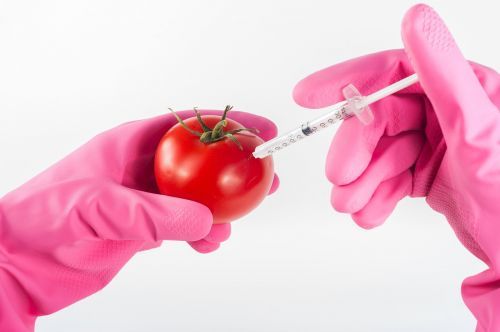What are GM Foods?
GM refers to any living thing that’s had its DNA altered using genetic engineering. This could be a plant, animal (including humans) or bacterium and the modification is typically done to introduce a desirable trait into the organism, such as drought resistance, or bearing larger fruit.
To some extent, humans have been involved in genetic modification for centuries. For example, larger cattle which gave more milk were bred to produce even larger offspring. Seeds from cereals and other crops that were hardier and grew better were selected for planting the following year to produce better yields. With genetically modified organisms however, the modifications involved are often of a kind that could not possibly occur naturally. For example, adding cow growth hormone to the embryo of a broiler chicken to produce a larger, faster growing chicken, or adding genes from a virus to a plant to allow it to become resistant to the virus.

